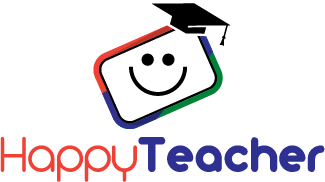
Course Description
This course is designed to provide teachers with the knowledge, skills, and practical strategies necessary to lead in today’s diverse and dynamic educational environment. It aims to cultivate leadership potential in every educator. Designed for teachers, counselors, and administrators, this course empowers individuals to demonstrate exemplary leadership in various domains, including instruction, policy, professional development, and association. Through engaging in a personally meaningful project or initiative within their own school, organization, state, or national level, participants will develop and refine their leadership capabilities while making a tangible impact on the educational community. Participants benefit from deep discussions about culture, social justice, culturally responsive teaching, and positive management in the classroom.
Not sure what kind of leadership work you would like to do? Here is a list of possible options:
- Create, research, update, or align curriculum.
- Independent study to learn new instructional technology tools.
- Teach a professional development course to colleagues or educators.
- Take courses in either content area, education, leadership, diversity, equity, literacy, or health.
- Organize field trips or travel for students or teachers.
- Create a mentorship program.
- Host a student teacher.
- Research educational policies and advocate for change.
- Lead your school, district, state, or nation to implement policies for education.
- Contact local, state, or national leaders to implement policies in education.
- Assist getting a referendum, bond, or levy passed.
- Engage with a union or association to advocate for policies or change.
- Become a representative in your local association.
Upon completion of this course, the participant will be able to:
- Explore and develop leadership capacities in the context of education, understanding that effective leadership takes diverse forms based on the individual strengths and the unique needs of each educational institution.
- Investigate ways to influence policy at the classroom, school, district, state, or national level
- Engage in a personally relevant and meaningful project or initiative that aligns with personal and professional goals and addresses a specific challenge or opportunity within the educational landscape. The leadership project will positively impact education.
- Create a comprehensive log of all project-related activities, including time spent, accomplishments, challenges encountered, and key insights gained during the course of the project.
- Write a comprehensive reflection paper that analyzes and synthesizes the leadership experience, highlighting personal growth, insights gained, and strategies for further leadership development.
Course Instructors
M.Ed. Leadership
Does not qualify for TEACH grant
This MA program does not include licensure. Check with your state on licensing requirements
| Course Number | Semester Credits | Course Title(s) |
|---|---|---|
| Happy Teacher Courses | 12 | Teacher Leadership Building a Positive School Culture AI in Education Trauma-Informed Education *Other Happy Teacher courses may be substituted |
| EDU 512 | 3 | Educational Research Methods |
| EDU 531 | 3 | Teaching & Working in a Multicultural Setting |
| EDU 590 | 3 | Capstone Seminar |
| EDU 516 | 3 | Best Practices: Research-Based Teaching Strategies |
| EDU 522 | 3 | Assessment for Learning |
| EDU 524 | 3 | Issues in Educational Psychology and Learning |
| EDU 534 | 3 | Instructional Coaching |
| EDU 538 | 3 | Educational Policy |


